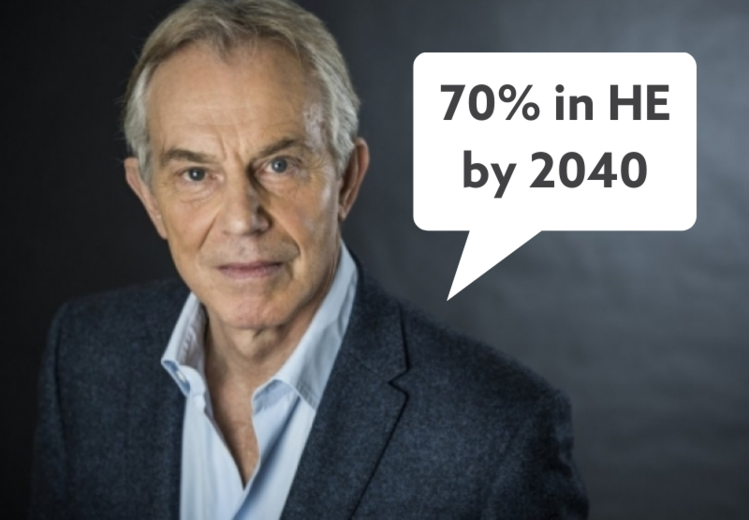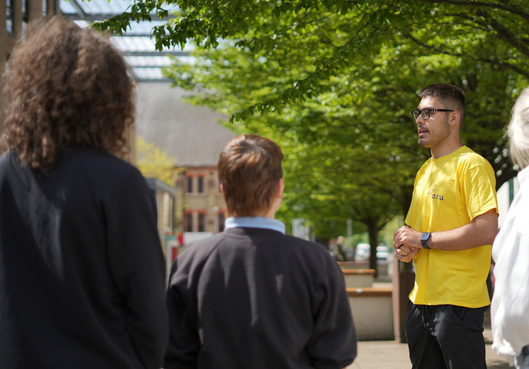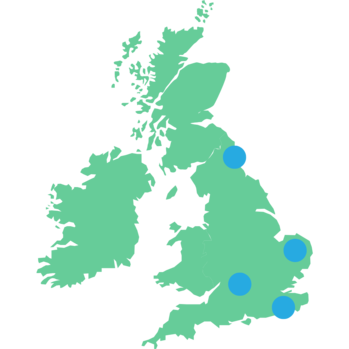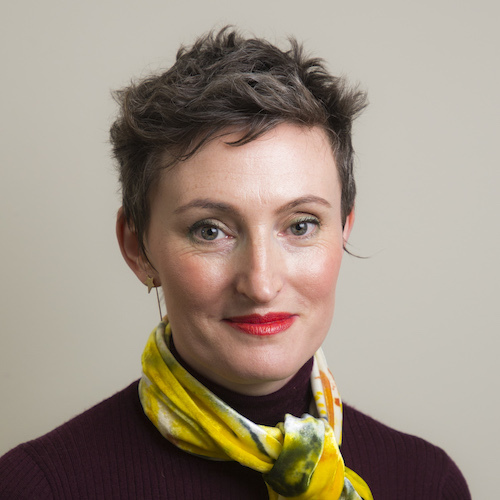What’s in a name? A lot - to some, at least...


Some of us are old enough to remember Tony Blair’s 1999 aspiration for 50% of young people (under 30) to go to university, with the aim of giving the UK an economic shot in the arm by delivering a new generation of workers skilled for the knowledge economy. Having achieved that target in 2019, the Tony Blair Institute for Global Change has recently updated its ambition: 70% into higher education (HE) by 2040.
It’s unclear what exactly the Blair Institute means by HE, a term that has historically been synonymous with the traditional taught university course. Given that its new report criticises the Government for “setting up a false choice” between university study and vocational education (something his original target could also be said to do), we can perhaps assume that HE in their terms is a broader church:
“Higher education comes in many forms, and much of it is both practically focused and an excellent preparation for the labour market, boosting incomes and growth.”
A pathway free from prejudice
Despite this clarification, coverage of this issue continues to perpetuate entrenched binary stereotypes of academic vs vocational. In places, this leans into rhetoric about class: academic = middle class = good; vocational = working class = bad. The implied value of terms such as 'higher' and 'further' education is something that panellists on our recent cross-sector workshop highlighted as an impediment to progress; young people should be following the pathway that’s right for them without the weight of language and narrative holding them back. After all, it is rarely the potential students who hold prejudice about different educational pathways; it is those privileged, established adults with a vested interest in protecting the cache of academic qualifications that allow those from advantaged backgrounds, who have been served by a rigged system, to pretend that we live in a meritocracy.
A conflict of interests and outcomes
There is a fundamental conflict in how we conceptualise the values of different strands of education. We believe that qualifications give us a competitive edge against our peers in a finite pool of opportunity and reward. This thinking both focuses minds on raising attainment and sets the scene for those who have been born into or acquired advantage to use it to enhance educational outcomes for their children - and, by turns, perpetuate disadvantage for others. Simultaneously, we believe that by raising the levels of knowledge and skill across the population we will collectively benefit from economic growth, breakthroughs in science, and new approaches to complex world problems. But to fully embrace this way of thinking, we have to let go of the notion that ‘winning’ is holding on to and growing advantage over others - and that’s bloody scary for a long-established system and entrenched way of thinking.
Speaking with our beneficiaries at Villiers Park, I think I have some understanding of what they want from our education systems, and it seems entirely reasonable and achievable. They say they want:
- agency and opportunity to shape their futures;
- to be confident that, at a minimum, they will leave education able to meet their economic needs and have opportunities to contribute to their communities and wider society in a positive way;
- to be supported through transitions across different types of learning - from academic to vocational or vice-versa; and
- the flexibility to access learning in a way that fits with who they are and what they are trying to achieve.
Doesn’t sound like too much to ask, does it?
HE policy that works
Those that have the ability and desire to benefit from higher education should have free choice to access whichever pathway they would like, academic or vocational, full or part time, local, national or international. In policy terms, this means:
- supply that meets demand (at the moment, demand for degree-level apprenticeships far outstrips supply);
- a nuanced admissions process that recognises learning gain and potential to succeed with the right support in place, and access to it;
- advice and guidance to achieve the goals that they set for themselves unlimited by prejudice;
- clearly articulated pathways through education and into employment; and
- to be set up to succeed in an ever-evolving jobs market with routes back into education when they want or need it.
What does this mean for a 70%-into-HE target? Not much, whatever is meant by HE, and absolutely nothing to the 4.3 million young people living in poverty in the UK - by which I mean hungry, cold and at risk of a shortened life because of this.
Instead, it means we need to be bold enough to have the really difficult conversations about the purpose of education, its role in eradicating poverty in the UK, and our commitment to opportunity for all. We need to think carefully about how the language we use to describe different strands of opportunity carries meaning and, if necessary, change it.
Everybody should have an equal opportunity to access the university experience if that is what they desire. We can offer this without undermining the value of non-degree pathways. As one of our brilliant Assistant Directors wrote during Careers Week in March, we need a holistic, person-centred approach to career options and pathways, free from divisive, outdated stereotypes - the sooner, the better.
Our Impact








